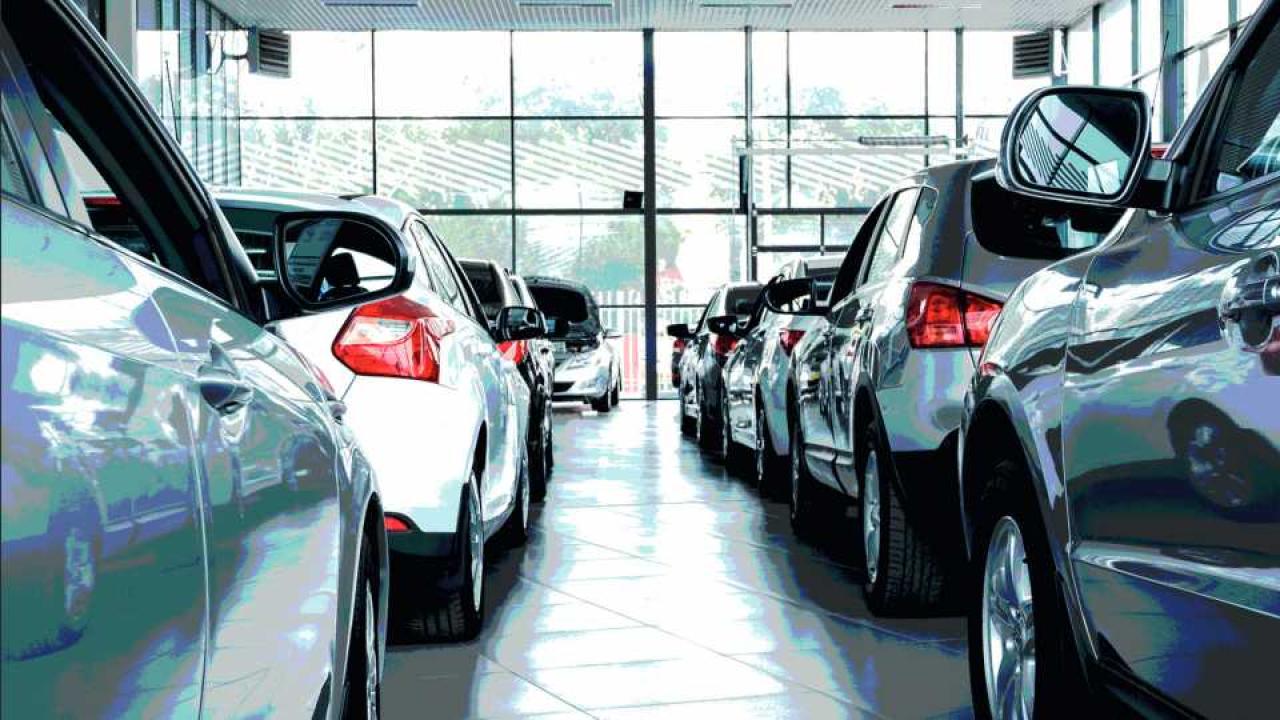Prime Minister Rishi Sunak has confirmed that the ban on the sale of new petrol and diesel cars will be delayed by five years - to 2035, claiming that this will enable families to wait to take advantage of falling prices.
This follows leaked reports from the BBC that forced the information out prior to the Prime Minister delivering his speech.
Defending his actions, the Prime Minister said in his speech: "People are already choosing electric vehicles to such an extent that we’re registering a new one every 60 seconds.
"But I also think that at least for now, it should be you the consumer that makes that choice, not government forcing you to do it.
"Because the upfront cost is still high – especially for families struggling with the cost of living."
It has not been clarified whether hybrid vehicles will still be able to be sold from 2035 for a further five years; when the 2030 ban was first announced, the government said that the sale of hybrid cars and vans that can drive a “significant distance with no carbon coming out of the tailpipe” could continue until 2035.
The delay to to the ban has been met - mostly - by disappointment and anger from the automotive and environmental industries.
Adrian Keen, CEO of the UK’s largest public charging network, InstaVolt said: “It is disappointing to be discussing the Government’s commitment to our country’s net zero journey yet again in light of recent speculation that the 2030 deadline may move backwards. Pushing back the petrol and diesel car ban brings into question the Government’s approach to net zero. This simply creates more uncertainty, and this makes customers nervous about the prospect of switching to electric. It instils the mindset: “If the Government isn’t taking it seriously, why should I?” which will be detrimental to achieving our net-zero goals.
“Changing the date also puts investment in EV infrastructure at risk, not to mention the wider market including battery, solar and green energy initiatives. We and other chargepoint operators need strong leadership from Government to continue delivering the charging infrastructure essential to reach the UK’s targets. Consumers also need this robust leadership; without it, uncertainties remain, and the concept of transitioning to an EV continues to feel daunting.
“Pushing the deadline would put the UK Government on a collision course with the UK’s net zero industries. It must urgently reconsider these proposed plans and provide more certainty about the future approach. We need to make this about the wider goals and what’s beyond, rather than just the ‘now’. We urge the Government to reconsider the expected relaxing of climate pledges.”
David Wells OBE, Chief Executive of business group Logistics UK said: “Pushing back the deadlines to decarbonise, rather than making progress on the investment and policies logistics businesses need to implement the route to Net Zero, is unhelpful and will discourage private investment in the UK and its industries. There is still much to be done, from delivering a charging network to confirming plans for alternatively fuelled vehicles, but our industry remains committed to achieving Net Zero.
“As a sector, logistics works hard to deliver on time for all sectors of the economy – if new decarbonisation deadlines are to be achieved, it is vital for the health of the UK’s supply chain, and therefore our economy, that the government does the same. At a time when industry needs detail and action, delay just creates more uncertainty.”
Lauren Pamma, Director of Transport Programmes at the Green Finance Institute, said: “Policy stability and certainty around the 2030 ban has set the direction of travel, resulting in billions of public and private capital being mobilised for the EV transition. Rowing back on this commitment and extending the mandate risks damaging the UK’s international investment credibility and seeing investors leave for markets with more certainty. If we want to make the EV transition affordable and accessible, we need to create the appropriate policy and investment environment to ensure the supportive supply chain and enabling infrastructure, such as grid capacity, are in place.”
Gerry Keaney, BVRLA Chief Executive, said: “The announcement will frustrate many while offering relief to others.
“Those that have made huge financial and strategic investments in this technology and mobilised their customers and workforces for decarbonisation will be worried that Government is applying the brakes.
“Others will be grateful for the extra breathing space this delay provides. They will be hoping that it gives more time for costs to come down and consumer attitudes to change.
“We await the further details that will show the true impact of today’s announcement.
"It is important that progress isn’t paused and momentum can be maintained. Either way, everyone is likely to have less trust in the Government’s Net Zero strategy and will think a lot harder before committing to any of its future strategies or roadmaps.”
Dr Nina Skorupska CBE, Chief Executive of the REA (Association for Renewable Energy and Clean Technology) said: “While badged as a 'pragmatic response' to the cost-of-living crisis and the UK's (undoubted) good progress to date on cutting emissions, it is hard not to see today's news as a retrograde step arguably designed to play to the PM's base before party-conference season and pre-election. Furthermore, Sunak feeds into the ongoing misguided media rhetoric of “net zero extremists” picking high profile policies to roll back on in the hope to garner votes, while leaving the industry a few positive measures through an effective repackaging of ongoing commitments.
“The purpose of long-term targets is to allow time for people to make the transition and for government to support them in doing so, and delays risk making the transition more expensive, while damaging UK competitiveness in terms of green investment. It is curious as to how government intends for the UK to remain a world leader by retracting on commitments - Industry urgently requires details on the Prime Minister’s new approach as a whole.
“The EV industry will particularly be looking towards more ambitious and favourable international markets."
Legal implications
ClientEarth, Good Law Project, and Friends of the Earth recently launched a joint legal challenge against the Government’s Carbon Budget Delivery Plan, arguing that it falls short of legal requirements set by the Climate Change Act 2008.
Good Law Project’s Legal Director, Emma Dearnaley, said “the Government's current plans to reduce emissions are already inadequate and unlawful. The last thing we need is for them to be weakened further.”
ClientEarth CEO Laura Clarke said: "As countries everywhere are battered by floods, heatwaves and wildfires, and as the world gathers in New York to accelerate climate action to address the crisis facing our planet, the UK Government has signalled that it is abandoning any vestiges of climate leadership.
“We know that climate action has broad public support, will reduce reliance on expensive fossil fuels, and secure a better future for our children. Further weakening climate policy is bad economics, bad politics, and legally high-risk too.
“We are already challenging the government’s existing climate plan on the basis that its policies cannot be relied on to deliver the UK’s carbon budgets. Any reduction in the overall strength of the government’s measures would only worsen that position against what the Climate Change Act requires.
“We will continue to pay close attention to any further announcements to assess these against the UK's legal obligations."
Ashley Tate, MD of Allstar Chargepass UK, says: “The car industry appears to be rallying against the Government, and we understand why. The lack of certainty is unsettling for businesses, but will it really change the course of the transition? We don’t think so. The shift to EVs is happening whether we like it or not – there will be lots of twists and turns ahead, not to mention the upcoming general election next year. But none of this will deter the industry.
“Car manufacturers are already committed to 2030 deadlines, most have changed their production lines and business models and have plans to stop manufacturing ICE vehicles. Ford has come out stating it’s keeping on track. UK businesses are demonstrating their commitment and the majority of car manufacturers are equally taking the role to net zero seriously. Not only that, they understand the role they play in meeting increased demand for EVs – the consumer shift is already happening so this will continue to influence things in more ways than one.
“The BIK benefit is the main driver behind EV adoption amongst company car drivers, regardless of what the Government does with the deadline, businesses are pushing ahead. There's more preference for EVs than ever before, and as a company helping to spearhead the EV transition in fleets, we'll continue to serve that demand.”
Reflecting reality?
Gordon Balmer, Executive Director of the Petrol Retailers’ Association, said: “The Prime Minister’s announcement today reflects the reality of the delays in meeting infrastructure targets. The widespread adoption of electric vehicles in the UK can’t be realistically achieved without the corresponding charging network to accommodate it. Delays in infrastructure targets and questions around alternative methods of tax to compensate for the loss of fuel duty revenue and VAT have cast a shadow over the 2030 deadline.
“Our members are committed to the decarbonisation of transport and are installing charging points to support an uptake of electric vehicles. We have called on the Government to provide support and direction concerning the critical issues of connecting to the grid and delivery of the required electricity to support the infrastructure. The PRA has consistently argued that the ban on new ICE vehicles by 2030 is a date without a plan and we hope the movement of the date to 2035 will allow us to continue to work with the Government on a sensible strategy to decarbonise transport.”
Sue Robinson Chief Executive of the National Franchised Dealers Association (NFDA), which represents car and commercial retailers across the UK: “Today’s announcement to delay the sale of new petrol and diesel vehicles from 2030 to 2035 is unsurprising given the Government's inertia around driving EV adoption in the UK. This change will likely create further uncertainty for the industry, however, it does align the UK automotive industry with the European Union, its largest international trading partner, and automotive dealers support this.”







